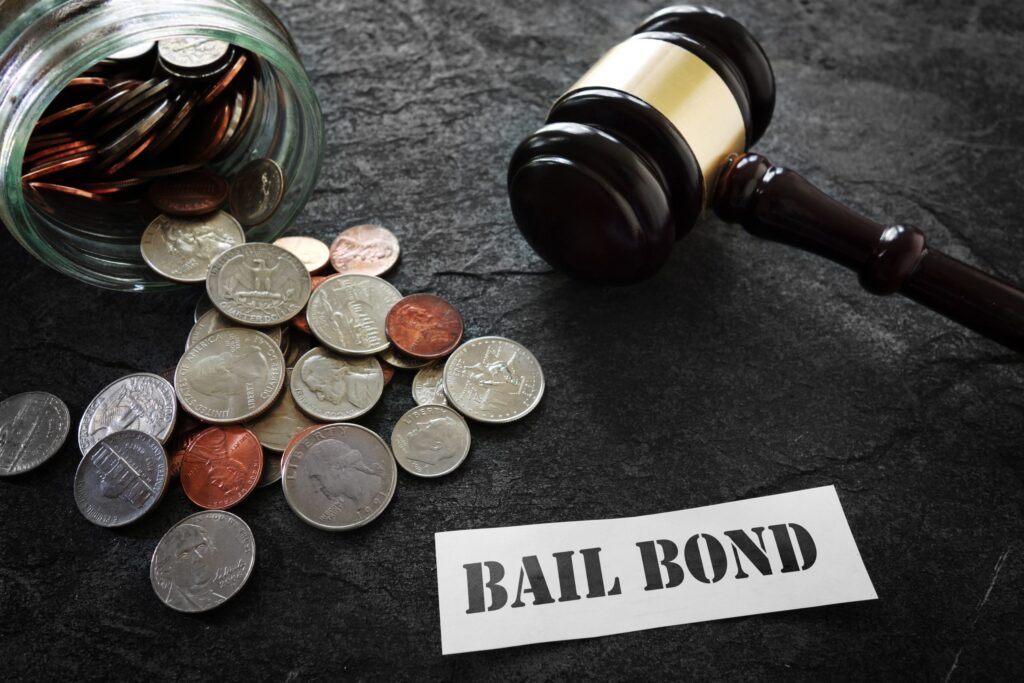https://www.justice.gc.ca/eng/cj-jp/bail-caution/index.htmlWhen an individual is arrested and taken into custody, they often encounter the term ‘bail’ which is a fundamental component of many judicial systems worldwide. At its core, bail serves as a monetary guarantee, ensuring that the accused returns to court for their scheduled appearances while allowing them temporary freedom. This system balances two objectives: safeguarding an individual’s presumption of innocence and their right to liberty, while also ensuring that the justice system can effectively function by making sure the accused stands trial.
Bail bonds, on the other hand, play a key role in facilitating this process, particularly for those who might not have the immediate funds to post the full bail amount set by the court. A bail bond acts as a contract between the accused, a bail bondsman, and the court. In this arrangement, the bail bondsman, or bail bond agent, pledges to pay the full bail amount should the defendant fail to make their court appearance.
In return, the defendant pays a fraction of the bail amount as a fee to the bondsman. Understanding this dynamic is essential as it illustrates the interplay between individual rights, the fine details of legal finance, and the broader objectives of the justice system.

The Bail Process
Once an individual is arrested, the bail process commences, serving as a bridge between immediate detention and potential release before a court hearing. After the arrest, the accused is taken into custody where the charges are recorded, and personal details are documented.
This initial phase, commonly referred to as the ‘booking process’, sets the stage for a subsequent event known as the bail hearing. During this hearing, a judge or magistrate evaluates various factors, including the nature and severity of the alleged crime, the accused’s previous criminal record, potential flight risk, and ties to the community, to determine an appropriate bail amount.
Depending on the jurisdiction or the severity of the crime, bail may be denied, especially if the defendant poses a significant flight risk or is deemed a potential threat to public safety. For those who are granted bail, the set amount can be paid directly to the court, resulting in the defendant’s release. If the accused cannot afford the bail amount, this is where bail bond agencies come into play, offering an alternative means to secure release while awaiting trial.
Obtaining a Bail Bond

The first essential step in obtaining bail bonds is to identify a reputable bail bond agency. Research is key. Seeking recommendations, checking online reviews, and ensuring the chosen agency is licensed and credentialed can help instill confidence in your choice.
Upon selecting a bail bond agency, one must then engage in a transparent discussion regarding the associated fees. Typically, bail bondsmen charge a percentage of the total bail amount as their fee, usually ranging from 10% to 15% depending on the jurisdiction. It’s imperative to understand this fee is non-refundable, regardless of the trial’s outcome.
Additionally, the agency may request collateral—assets like property or vehicles—to cover the risk of the defendant not appearing in court. Once the fee is agreed upon and the necessary paperwork is meticulously completed, the bail bondsman will then post the bail on behalf of the defendant, initiating the release process.
Obligations After Posting Bail
Upon securing release through the bail system, a new set of responsibilities commence. Among these obligations is the unequivocal commitment to attend all scheduled court proceedings. This is the foundational premise upon which bail is granted, emphasizing the court’s trust in the defendant’s promise to return. In addition to court appearances, some bail conditions might include restrictions on travel, mandates to stay away from certain individuals or places, or requirements to attend counseling or rehabilitation programs.
Failure to adhere to any of these conditions can result in immediate revocation of bail, leading to re-arrest and potential forfeiture of any assets pledged as collateral. It’s also prudent for the defendant to maintain open lines of communication with their legal representation and the bail bond agency, ensuring all involved parties are aligned in their understanding and execution of post-bail responsibilities.
Bounty Hunters

Bounty hunters, often referred to as bail enforcement agents, operate within the bail bond system as specialized professionals tasked with locating and apprehending individuals who have failed to appear in court after being released on bail. Collaborating closely with bail bond agencies, these agents step in when a defendant “jumps bail” to ensure the bondsman isn’t left covering the full bail amount.
Empowered by their agreement with the bail bond agency, bounty hunters have a unique set of rights, allowing them to enter private properties and make arrests without traditional warrants. It’s essential to note that their authority is not unlimited; they must operate within the legal boundaries set by each jurisdiction and are generally subject to licensing and training requirements to ensure proper conduct and uphold the law’s integrity.
Engaging in the bail bond system demands a comprehensive comprehension of its intricate components, spanning from the initial process of posting bail to the potential engagement of bounty hunters. To navigate this complex legal terrain effectively, it is essential for individuals to equip themselves with a deep understanding of each step involved.
By doing so, they can confidently tread this intricate path, simultaneously safeguarding their rights and fulfilling their responsibilities within the system. This multifaceted approach not only fosters transparency and fairness but also ensures that the delicate balance between personal liberty and societal accountability is maintained.

